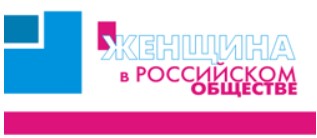ПОЛОЖЕНИЕ ЖЕНЩИН В РЕСПУБЛИКЕ КОРЕЯ: ИНДЕКС ОСЕВЫХ ИНСТИТУТОВ
WOMEN’S POSITION IN THE REPUBLIC OF KOREA: AN AXIAL INSTITUTIONS INDEX
Author(s): Sofia M. Rebrey, Viktoriya V. BogachevaSubject(s): Gender Studies, Governance, Sociology, Labor relations, Politics and society, Family and social welfare, Socio-Economic Research
Published by: Ивановский государственный университет
Keywords: gender equality; axial institutions index; unpaid work; work —family life balance; women in science; women in governance; Republic of Korea;
Summary/Abstract: The Republic of Korea is one of the developed economies claiming world leadership in the markets of high-tech products and in the field of scientific and technical achievements. However, at the same time, the country ranks low in the rankings of gender equality, the problem which is so complex that it affects all spheres of life of South Korean society. This study is concerned with measuring gender equality in South Korea in axial institutions (family and labor market, education and science, state and corporate governance), as well as identifying positive and negative trends in the context of government policies to tackle gender inequality. One of the main results of this study was the identification of predominantly positive trends in the development of gender equality in the Republic of Korea. Since the late 1990s the level of gender equality has been increasing, especially in the field of state and corporate governance, as well as in family and science mostly to pro-equality government policy. In the corporate sector, an additional factor for women‘s empowerment is a high degree of integration into the global economy and a willingness to cooperate with Western corporations. At the same time, the situation in the labor market is still quite pessimistic: a high level of horizontal segregation and large gaps in participation, wages and income. The phenomenon of double workload and the feminization of poverty remain serious problems in South Korea. Amid the intensification of conservative rhetoric in the political life of the Republic of Korea, the positive dynamics of the last fifteen years in the development of gender equality could be undermined; a solid foundation for equal opportunities has yet to be formed. Today, it is especially important to continue to expand the involvement of fathers and to study the socio-economic consequences of such a rapid transformation of the family model. It is also important to continue to increase the representation of women in state, corporate and academic institutions.
Journal: ЖЕНЩИНА В РОССИЙСКОМ ОБЩЕСТВЕ
- Issue Year: 2024
- Issue No: 1
- Page Range: 23-39
- Page Count: 17
- Language: Russian

